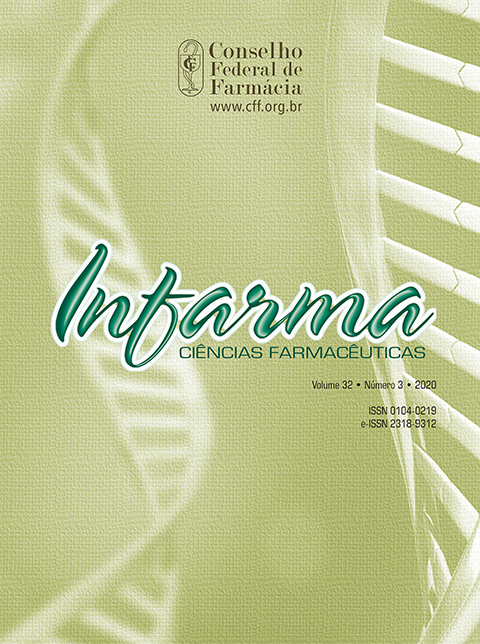PHARMACEUTICAL CARE IN THE EDUCATION OF PATIENTS USING MEDICAL DEVICES
DOI:
https://doi.org/10.14450/2318-9312.v32.e3.a2020.pp204-222Keywords:
Pharmaceutical Care, medical devices, health education, insulin pen device, inhalation drug delivery devices, colostomy irrigation systems.Abstract
The practice of incorrect techniques regarding “assistive technologies” can lead to severe complications for the patient, such as severe under or overdose events (related, respectively, to possible lack of eff ectiveness or response exacerbation). At the time of dispensing such products, the pharmacist can contribute to the improvement of patient experience and Health Education. The objective of this study is to analyze the current scenario of the use of medical devices by the patients themselves, focusing on the implications of their incorrect performance, and to highlight the pharmacist’s opportunity to teach correct use techniques. Considering the expressiveness of the diseases to which they are associated, the following devices were chosen: insulin injection pens, dry powder inhalation devices, and medication nebulization devices; and colostomy irrigation systems. A narrative bibliographic review of the last 20 years of articles published in English, Portuguese and Spanish, consulted in SciELO, PubMed, Web of Science and Science Direct databases, as well as magazines/newspapers, websites from national and international institutions, was performed respecting the limit of approximately 2-4 publications per theme. The selected articles demonstrated the implications of the misuse of these devices and discussed the impact of interventions carried out by health care professionals, especially pharmacists, in the education of users of such products, with the improvement of life quality. It was possible to understand the importance of Health Education and to verify the opportunity of the pharmacist in establishing educational plans in this scenario.
Downloads
Published
How to Cite
Issue
Section
License
Authors who publish in this journal agree to the following terms:
- Authors retain the copyright and grant the journal the right of first publication, with the work simultaneously licensed under the Licença Creative Commons Attribution which allows the sharing of work with acknowledgment of authorship and initial publication in this journal.
- Authors are authorized to take additional contracts separately, for non-exclusive distribution of the version of the work published in this journal (e.g. publish in institutional repository or as a book chapter), with acknowledgment of authorship and initial publication in this journal.
- Authors are allowed and encouraged to publish and distribute their work online (e.g. in institutional repositories or on their personal page) at any point before or during the editorial process, as this can generate productive changes as well as increase the impact and Citation of published work (See O Efeito do Acesso Livre ).


